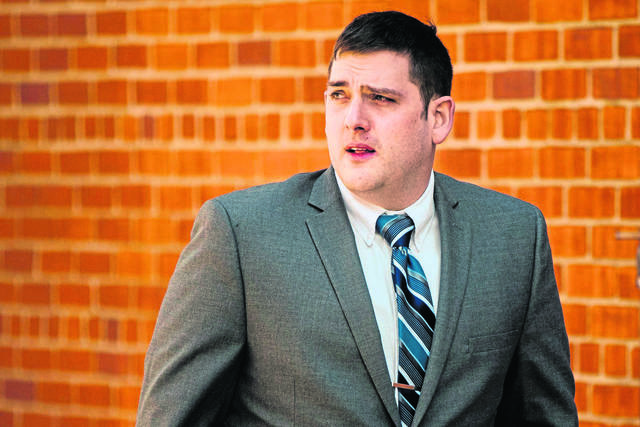Legal experts called Michael Rosfeld’s decision to testify in his defense a risky strategy that likely will become the focal point of his homicide trial.
“It really becomes a critical moment in the trial,” said Bruce Antkowiak, a former federal prosecutor and law professor at Saint Vincent College.
“When the defendant testifies, while all other evidence remains important, so much of the case starts to focus on whether or not the jury reacts well to and believes the defendant,” Antkowiak said. “So much of the arguments are going to focus on the defendant’s testimony.”
Rosfeld, a former East Pittsburgh police officer, testified Thursday that he thought one of the two teens who ran from a June 19 traffic stop pointed a gun at him. He said he fired his weapon until the perceived threat was eliminated.
Antwon Rose II, 17, died after being shot three times.
In most cases, lawyers try to avoid having their clients testify.
But in this case, Antkowiak said Rosfeld probably had a better sense of what it meant to take the stand.
“How he portrays himself, how he characterizes what was in his mind at the time of the shooting, is as critical as the actual words that he used to describe it,” Antkowiak said.
Duquesne University law professor Wes Oliver said Rosfeld taking the stand could help humanize him.
“We have been viewing the story as, ‘Oh another officer who shot a black man.’
”Him testifying breaks the story out of this paradigm and says, ‘It’s not an officer who shot a black man, it’s Michael Rosfeld … how do you judge him?’” said Oliver.
But Oliver admits the strategy could backfire.
“Anytime your client testifies, how he handles the cross-examination, how he responds to the question of saying at one time he did see a weapon, then he said he didn’t,” Oliver said. “Those inconsistencies may or may not mean anything.”








